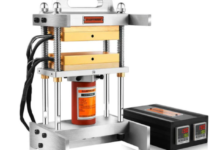How Long Does Cbd Stay in Your System for a Urine Test

The duration CBD remains detectable in the system is a common concern, especially for those facing urine tests. Typically, CBD can stay in the body for about a week, but this timeframe can vary significantly. Factors such as dosage, frequency of use, and individual metabolism play crucial roles. Additionally, while standard urine tests do not target CBD, they may detect THC. Understanding these nuances is essential for anyone considering CBD use in relation to testing scenarios.
Understanding CBD Metabolism
How does the body process CBD?
After ingestion, CBD enters the bloodstream, where absorption rates vary based on factors such as method of consumption.
Once in the system, CBD undergoes metabolism primarily in the liver, following specific elimination pathways.
These processes determine how long CBD remains detectable, influencing its effects and duration of presence in the body.
Factors Influencing CBD Detection Times
Several factors can significantly influence the duration CBD remains detectable in an individual's system.
These include dosage, frequency of use, individual metabolism, and body composition. CBD elimination rates vary, affecting the detection window in urine tests.
Additionally, the method of consumption, whether oil, capsule, or edible, can also alter how long CBD lingers, impacting overall detection times for users.
Urine Testing for CBD: What to Expect
When undergoing a urine test, individuals may wonder what to expect regarding the detection of CBD.
While CBD itself typically does not show up on standard drug tests, legality concerns arise from the presence of THC in some products.
Testing accuracy implications can vary, leading to potential confusion for users.
Understanding these factors is crucial for those navigating the complexities of CBD consumption and testing.
Tips for Managing CBD Use Before a Test
Understanding the implications of urine testing for CBD sets the stage for effective management of CBD use prior to a test.
Individuals should carefully monitor their CBD dosage, reducing intake in the days leading up to the test.
Additionally, thorough test preparation, including hydration and timing of consumption, can help mitigate the risk of detection, promoting a more favorable outcome in testing scenarios.
Conclusion
In conclusion, understanding how long CBD stays in the system is crucial for users, particularly when facing urine tests. Various factors, such as dosage and individual metabolism, significantly affect detection times. While standard tests typically do not identify CBD, they may reveal trace THC levels. To ensure peace of mind, users should approach their CBD consumption with caution, as a little foresight can go a long way in avoiding potential complications during testing.






